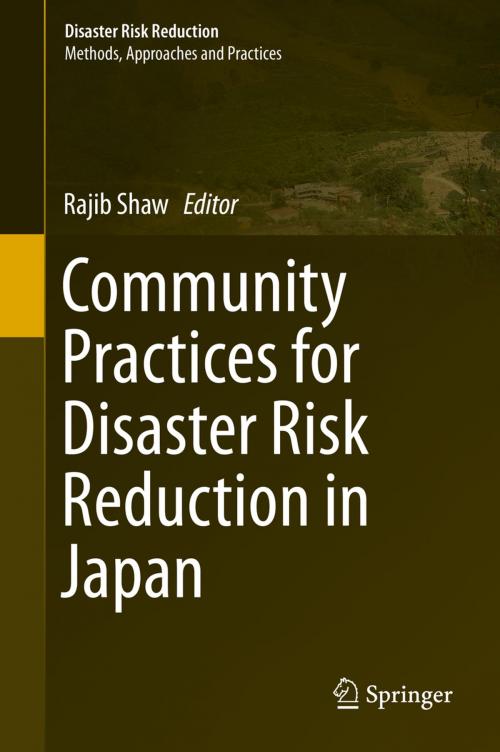Community Practices for Disaster Risk Reduction in Japan
Nonfiction, Science & Nature, Nature, Environment, Natural Disasters, Science, Biological Sciences, Environmental Science| Author: | ISBN: | 9784431542469 | |
| Publisher: | Springer Japan | Publication: | January 18, 2014 |
| Imprint: | Springer | Language: | English |
| Author: | |
| ISBN: | 9784431542469 |
| Publisher: | Springer Japan |
| Publication: | January 18, 2014 |
| Imprint: | Springer |
| Language: | English |
This book presents key lessons from community-based risk-reduction practices in Japan, a country that is often hit by disasters and that also has shown strong resilience in coping with those disasters. Japan has a strong governance system for disaster risk reduction. However, the Kobe earthquake of 1995 showed the importance of community involvement in disaster response as well as recovery. With several examples from different parts of Japan, the book elaborates on the importance of community-based risk reduction and the innovations required for sustaining some of the community approaches. The book has 13 chapters and is divided into three parts: (1) Evolution of community-based risk reduction in Japan; (2) Community-based risk-reduction issues; and (3) Case studies.
The primary target groups for this book are students and researchers in the fields of environment, disaster risk reduction, and climate change studies. The book provides them with a good idea of the current research trends in the field and furnishes basic knowledge about these vital topics. Another target group comprises practitioners and policy makers, who will be able to apply the knowledge collected here to policy and decision-making.
** **
This book presents key lessons from community-based risk-reduction practices in Japan, a country that is often hit by disasters and that also has shown strong resilience in coping with those disasters. Japan has a strong governance system for disaster risk reduction. However, the Kobe earthquake of 1995 showed the importance of community involvement in disaster response as well as recovery. With several examples from different parts of Japan, the book elaborates on the importance of community-based risk reduction and the innovations required for sustaining some of the community approaches. The book has 13 chapters and is divided into three parts: (1) Evolution of community-based risk reduction in Japan; (2) Community-based risk-reduction issues; and (3) Case studies.
The primary target groups for this book are students and researchers in the fields of environment, disaster risk reduction, and climate change studies. The book provides them with a good idea of the current research trends in the field and furnishes basic knowledge about these vital topics. Another target group comprises practitioners and policy makers, who will be able to apply the knowledge collected here to policy and decision-making.
** **















